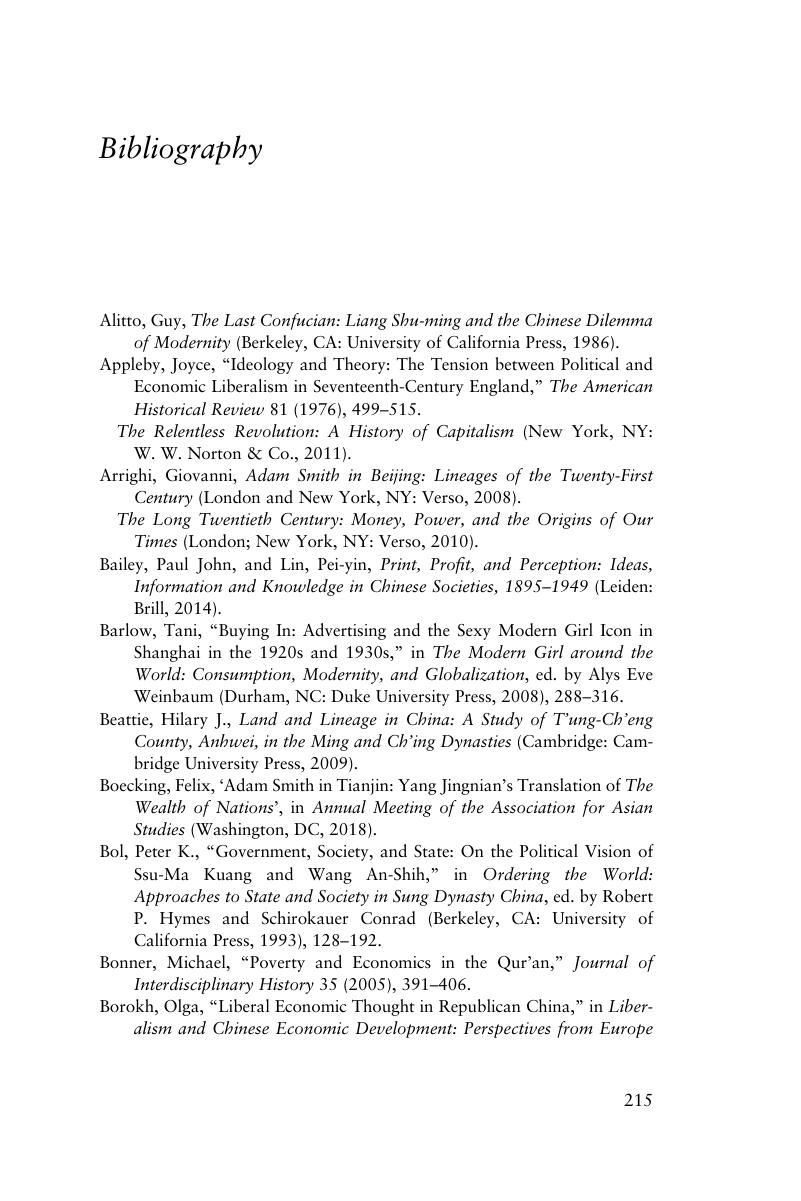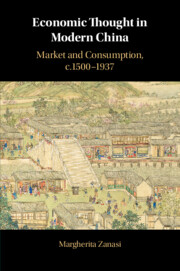Book contents
- Economic Thought in Modern China
- Economic Thought in Modern China
- Copyright page
- Dedication
- Contents
- Maps
- Acknowledgments
- Chronology
- Maps
- Introduction
- 1 The Political and Intellectual Framework
- 2 Efficient Markets, Jiangnan’s Luxury, and Productive Consumption (1500–1800)
- 3 Scarcity Revisited: Population Growth, Frugality, and Self-Strengthening (1800–1911)
- 4 Nation Building, Strategic Markets, and Frugal Modernity in the Early Decades of the Republic of China (1912–1930s)
- Conclusion
- Glossary
- Bibliography
- Index
- References
Bibliography
Published online by Cambridge University Press: 16 April 2020
- Economic Thought in Modern China
- Economic Thought in Modern China
- Copyright page
- Dedication
- Contents
- Maps
- Acknowledgments
- Chronology
- Maps
- Introduction
- 1 The Political and Intellectual Framework
- 2 Efficient Markets, Jiangnan’s Luxury, and Productive Consumption (1500–1800)
- 3 Scarcity Revisited: Population Growth, Frugality, and Self-Strengthening (1800–1911)
- 4 Nation Building, Strategic Markets, and Frugal Modernity in the Early Decades of the Republic of China (1912–1930s)
- Conclusion
- Glossary
- Bibliography
- Index
- References
Summary

- Type
- Chapter
- Information
- Economic Thought in Modern ChinaMarket and Consumption, c.1500–1937, pp. 215 - 229Publisher: Cambridge University PressPrint publication year: 2020



